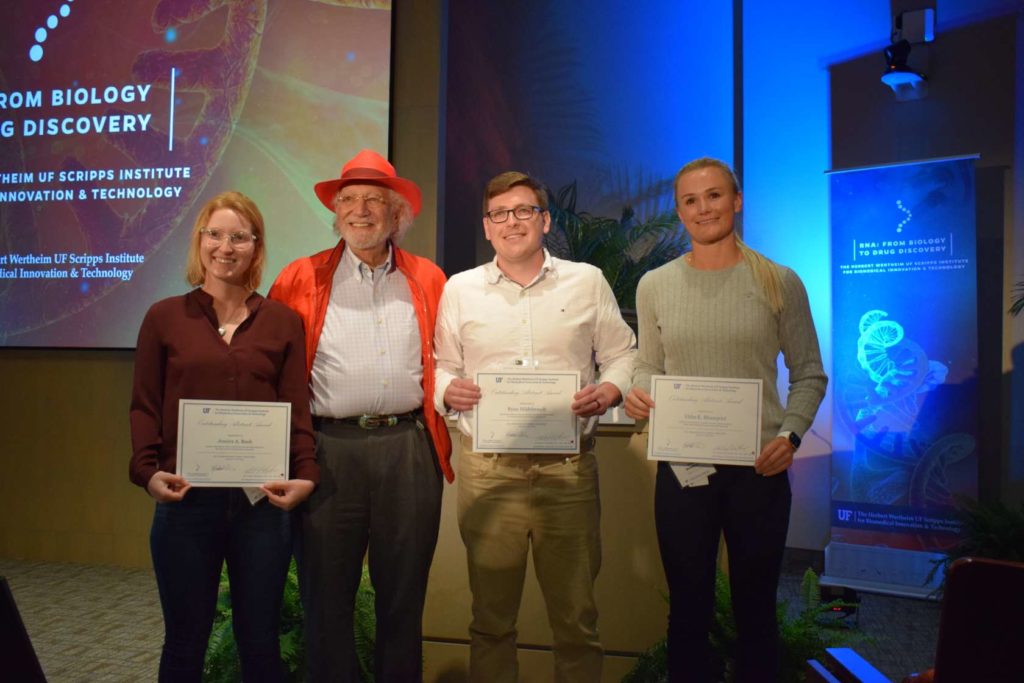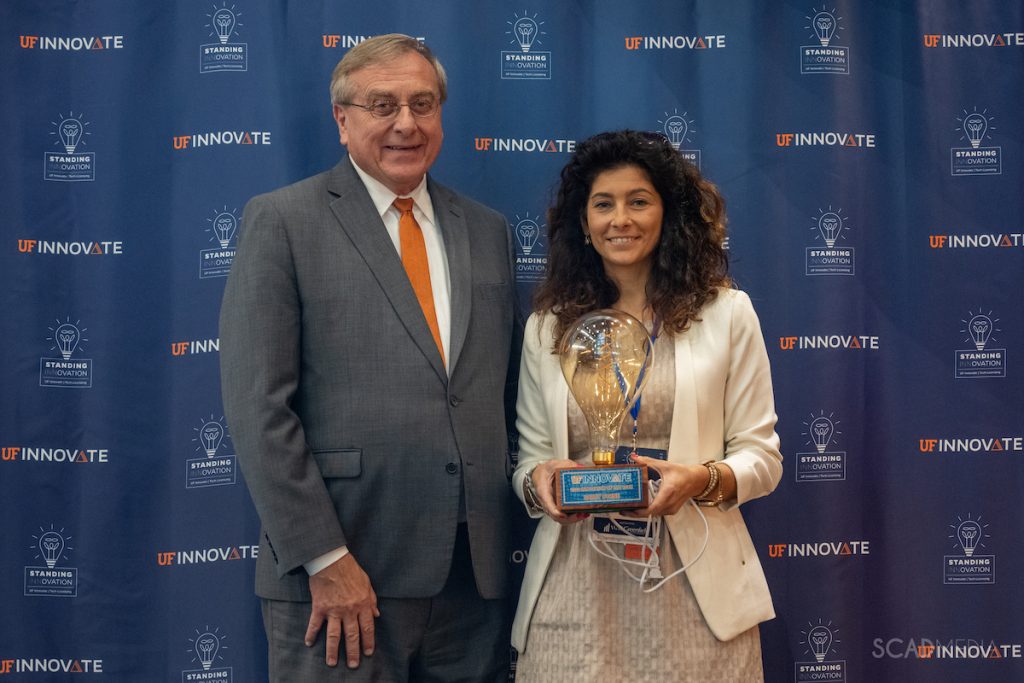Studies: Inflammation-Targeting Antibody Boosts Preterm Birth Outcomes, Prevents Obesity-Linked Liver Disease
Targeting a master regulator of inflammation with a monoclonal antibody potentially improves two unrelated conditions with limited treatment options: preterm births and fatty liver disease, two new studies show.
Climbing a New Path Allows Chemists To Ascend Cancer’s Steepest Research Challenges
The cancer gene MYC has been called the “Mount Everest” of cancer research because of the difficulty of designing medications that can disable it, and the expectation that an effective MYC drug could help so many cancer patients. A collaboration among RNA scientists, chemists and cancer biologists in Florida and Germany has climbed that peak, while opening new routes to summit other similarly hard-to-treat diseases.
New Scientist Takes Aim at TB, the World’s Deadliest Infectious Disease
Luiz Pedro Carvalho, Ph.D., is on a quest to find new medicines for treatment-resistant diseases, including tuberculosis, which is again the world’s deadliest infectious disease, after briefly falling behind COVID-19. Carvalho is the newest faculty member to join The Herbert Wertheim UF Scripps Institute for Biomedical Innovation & Technology as a professor of chemistry.
First ‘Institute Professor’ of The Wertheim UF Scripps Institute Inventing New Ways to Target Incurable Diseases Via RNA
Matthew D. Disney, Ph.D., a professor and chair of the Department of Chemistry at The Wertheim UF Scripps Institute for Biomedical Innovation & Technology, has been named the first “Institute Professor” at the institution.
Third Annual Science2Startup Symposium Will Foster Collaboration Between Researchers, Entrepreneurs and Top Investors
Kirill Martemyanov, Ph.D., professor and chair of The Herbert Wertheim UF Scripps Institute for Biomedical Innovation & Technology, is one of the 10 presenters selected for the third annual Science2Startup Symposium taking place May 3, 2023.
RNA Symposium Attracts Thought Leaders in Basic and Translational Research to Jupiter, FL

More than 175 people attended “RNA: From Biology to Drug Discovery” at The Herbert Wertheim UF Scripps Institute for Biomedical Innovation & Technology. It was the first major scientific conference at the institute since the pandemic began, and so researchers relished the opportunity to share recent work and reconnect. The conference attracted 18 impressive outside speakers, including multiple Howard Hughes Medical Institute investigators, members of the U.S. National Academy of Sciences and the Institute of Medicine. Incoming Max Planck President-Elect Patrick Cramer, Ph.D., shared his structural studies of the machinery underlying DNA transcription, featuring riveting imaging of transcription complexes in motion.
Wertheim UF Scripps Institute Scientists Find Potential Cellular Target for HIV Therapies

Researchers at The Herbert Wertheim UF Scripps Institute for Biomedical Innovation & Technology have discovered a protein that appears to play a key role in helping HIV replicate in human immune cells, providing more clues about how cellular machinery allows the virus to create new copies of itself.
Genetic Cause of Als and Dementia Repaired by RNA-Targeting Strategy Developed at UF Scripps

Scientists at UF Scripps Biomedical Research have developed a potential medicine for a leading cause of ALS and dementia that works by eliminating disease-causing segments of RNA. The compound restored the health of neurons in the lab and rescued mice with the disease.
Jupiter Scientist Courtney Miller Named BioFlorida’s Entrepreneur of the Year
Praising her ongoing passion for developing a new class of treatments for cancer and addiction, Florida’s biotechnology industry organization, BioFlorida, has awarded its 2022 Weaver H. Gaines Entrepreneur of the Year award to Courtney Miller, Ph.D., director of academic affairs and a professor at UF Scripps Biomedical Research in Jupiter, Florida.
UF Innovate Honors Innovators at Fifth Standing InnOvation Celebration

More than 200 innovators and entrepreneurs gathered for UF Innovate | Tech Licensing’s fifth annual Standing InnOvation event to honor and celebrate innovators and their work at the University of Florida in fiscal year 2022.
